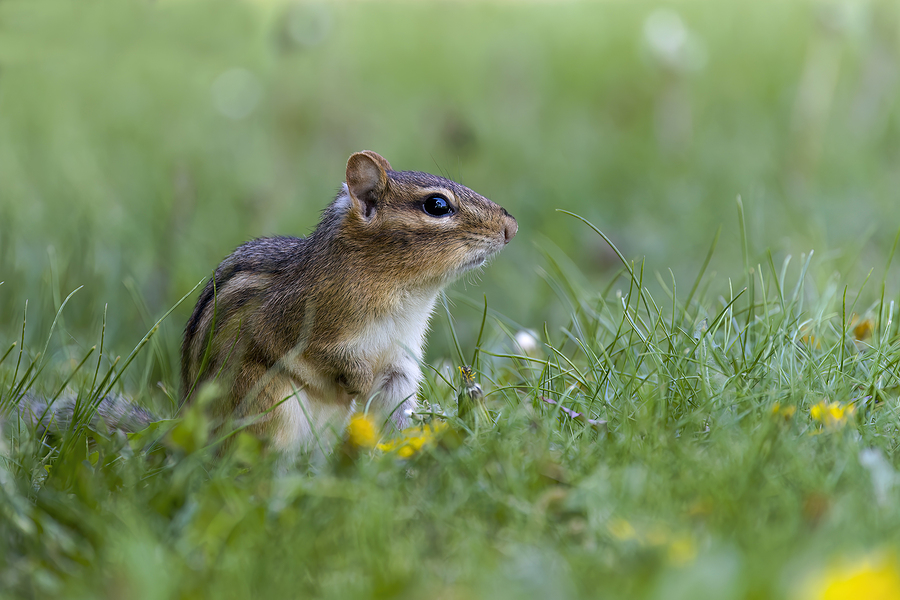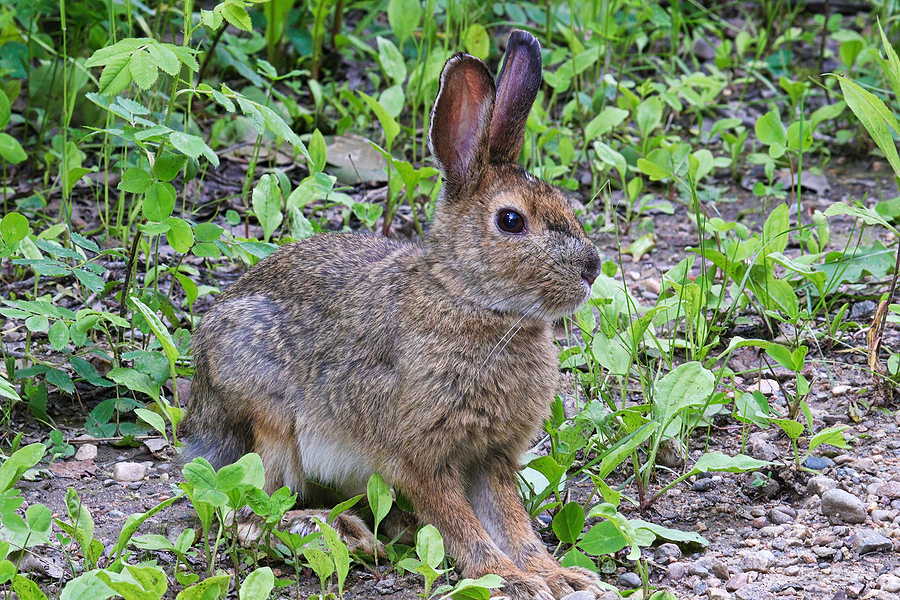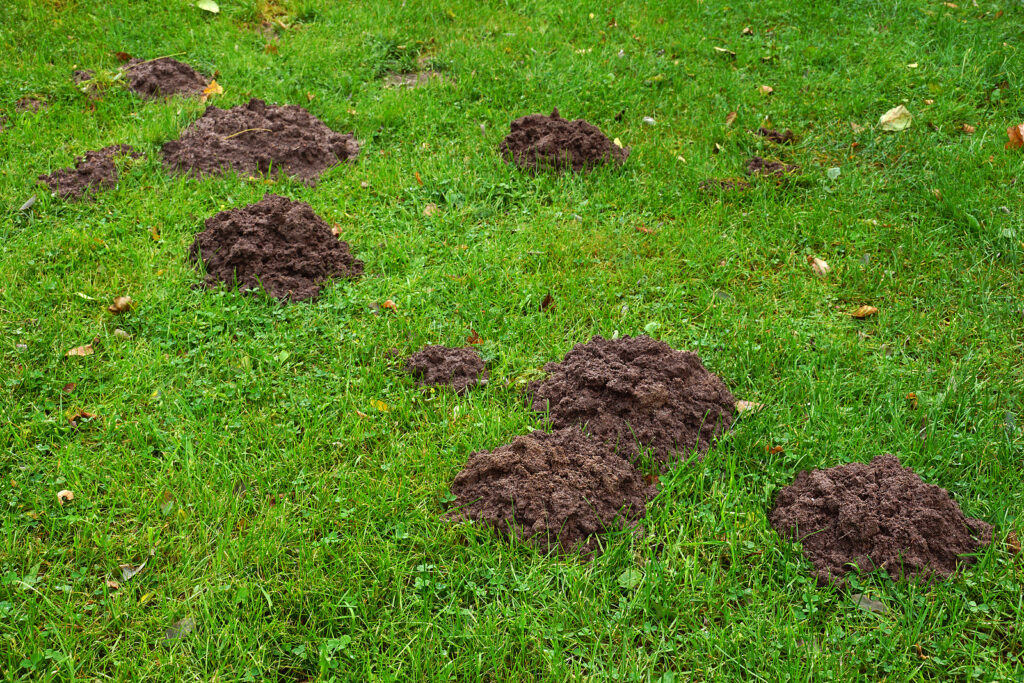Chipmunks may look cute and harmless, but these small creatures can cause significant damage to your yard if left unchecked. From burrowing holes that can ruin your landscaping to gnawing on ornamental plants, the havoc they wreak is far from negligible. If you are struggling with a chipmunk infestation and looking for effective solutions, you’ve come to the right place.
Welcome to our Ultimate Guide to Chipmunk Removal. Here, we will provide you with comprehensive information on successful chipmunk deterrents and repellents, and practical steps to keep your yard safe, healthy, and chipmunk-free.

Understanding Chipmunks
Before we dive into the methods of chipmunk removal, it’s essential to understand these furry creatures’ habits and behaviors. Chipmunks are small rodents that belong to the squirrel family. They are known for their striped backs and cheeks that they use to store food. Chipmunks prefer to live in areas with plenty of cover, such as overgrown lawns, bushes, or woodpiles. They are most active during the day and can produce two to three litters each year with five to eight offspring in each litter. This rapid reproduction makes it challenging to control chipmunk populations once they have infested your yard.
Signs of Chipmunk Infestation
The first step in chipmunk removal is to determine whether you have an infestation in your yard. Here are some common signs to look out for:
Holes and tunnels: Chipmunks dig burrows in the ground, creating holes or tunnels that are approximately two inches wide.
Damaged plants: These rodents gnaw on flowers, fruits, and vegetables, leaving behind bite marks and damage.
Chewed wires: Chipmunks can also cause electrical hazards by chewing on wires and cables.
If you notice any of these signs, it’s best to take immediate action to prevent further damage to your yard.
Effective Chipmunk Deterrents
There are several methods you can use to deter chipmunks from entering your yard. These include:
Removing potential hiding spots: Keep your lawn and garden tidy by trimming bushes, cutting back overgrown plants, and removing any debris or woodpiles where chipmunks may hide.
Using repellents: There are various commercial chipmunk repellents available in the market that use scents like garlic or predator urine to keep these rodents at bay. You can also make your own repellents using ingredients like cayenne pepper or peppermint oil.
Installing barriers: Physical barriers can be an effective way to keep chipmunks out. You can use wire mesh or fencing around your garden, plants, and trees to prevent access.
Natural Chipmunk Repellents
If you prefer a more natural approach to chipmunk removal, here are some options you can try:
Planting deterrent plants: Certain plants, such as daffodils, hyacinths, and alliums, are known to repel chipmunks due to their strong smell or taste.
Using predators: You can attract natural predators of chipmunks, such as cats, dogs, or birds of prey, to your yard to keep the chipmunk population in check.
Using sound and light: Some people have had success using ultrasonic devices or motion-activated lights to deter chipmunks. These devices emit high-frequency sounds or flashes of light that are unpleasant for these rodents.
Professional Chipmunk Removal Services
If your chipmunk infestation is severe or you are unable to control it on your own, it may be time to call in the professionals. Licensed and insured wildlife removal and control services offer effective and humane methods of chipmunk removal, such as live trapping and relocation.
Preventing Future Infestations
Once you have successfully removed chipmunks from your yard, it’s crucial to take preventive measures to avoid future infestations. Here are some tips to keep your yard safe:
Seal off entry points: Make sure there are no openings or cracks in your home’s foundation, walls, or pipes that could provide access for chipmunks.
Clean up fallen fruits and nuts: Chipmunks are attracted to food sources. Be sure to clean up any fallen fruits or nuts from trees regularly.
Use bird feeders wisely: If you have bird feeders, make sure they are not spilling seeds on the ground, as this can attract chipmunks.
By following these tips and being proactive in your approach, you can effectively prevent future chipmunk infestations.
In Conclusion
Chipmunks may be cute, but they can cause significant damage to your yard if left unchecked. By understanding their behavior, using effective deterrents and repellents, and taking preventive measures, you can keep your yard safe, healthy, and chipmunk-free. Whether you choose to tackle the infestation on your own or seek professional help, we hope this guide has provided you with valuable information for successful chipmunk removal.
Now it’s time to reclaim your yard and enjoy it to the fullest! So, don’t wait any longer. Contact Smoky Wildlife Control at 615-610-0962 for TWRA licensed and insured chipmunk removal and control in Nashville, Tennessee and beyond. We also work with many other types of wildlife and serve both residential and commercial clients.
Related Posts:
How to Get Rid of Chipmunks in Your Yard
How to Keep Chipmunks Out of the Garden
Educational Facts About Chipmunks



